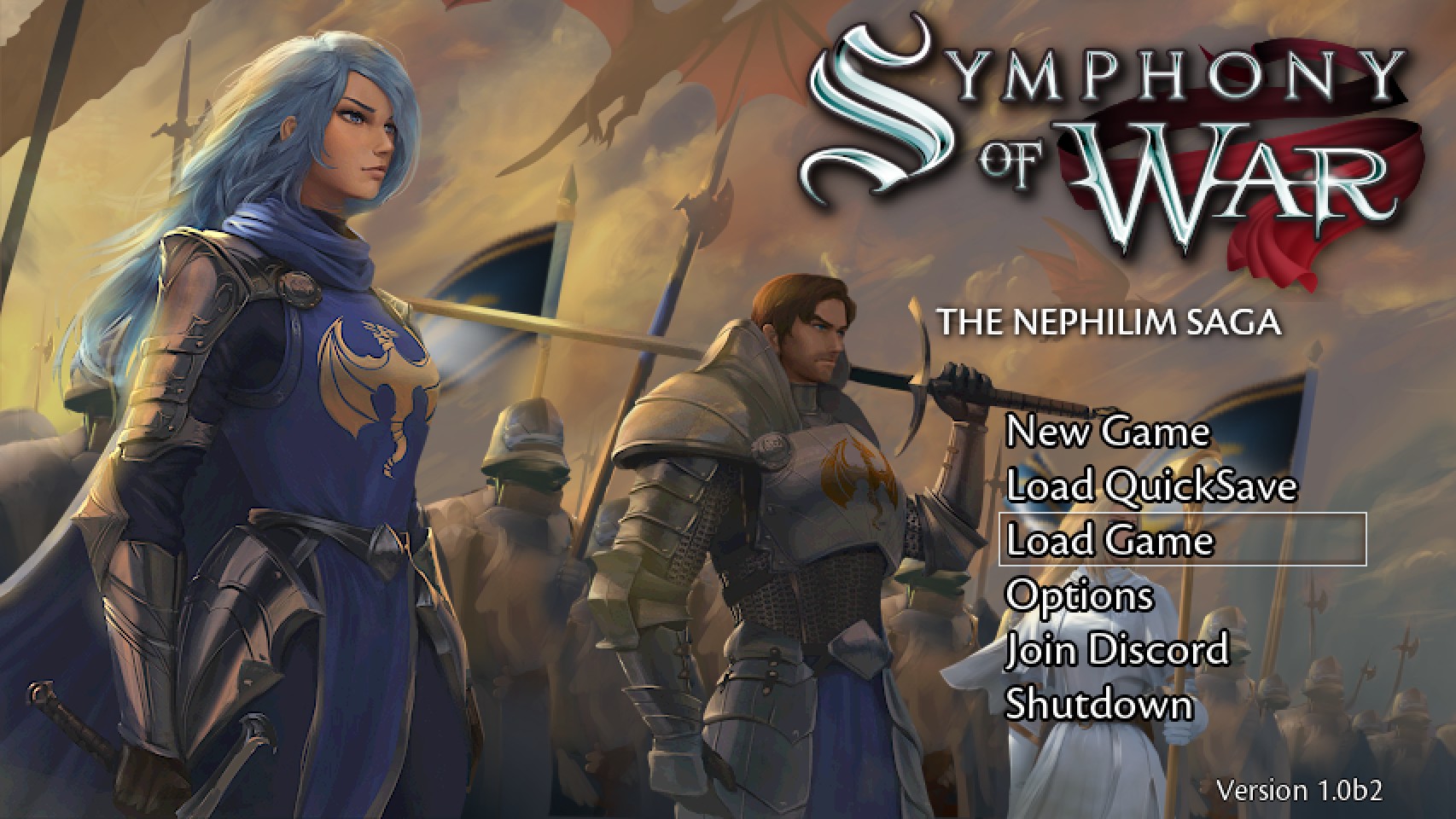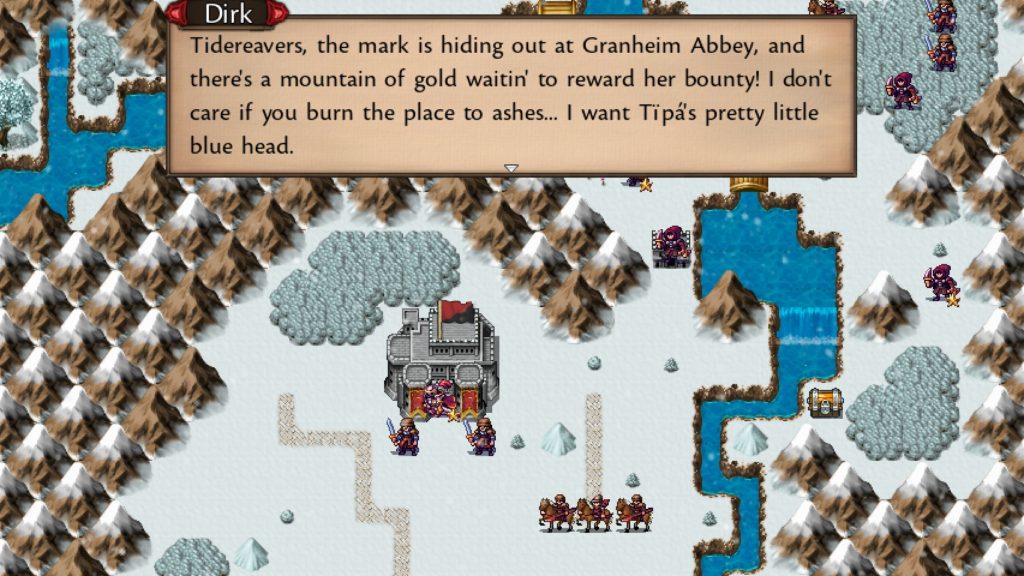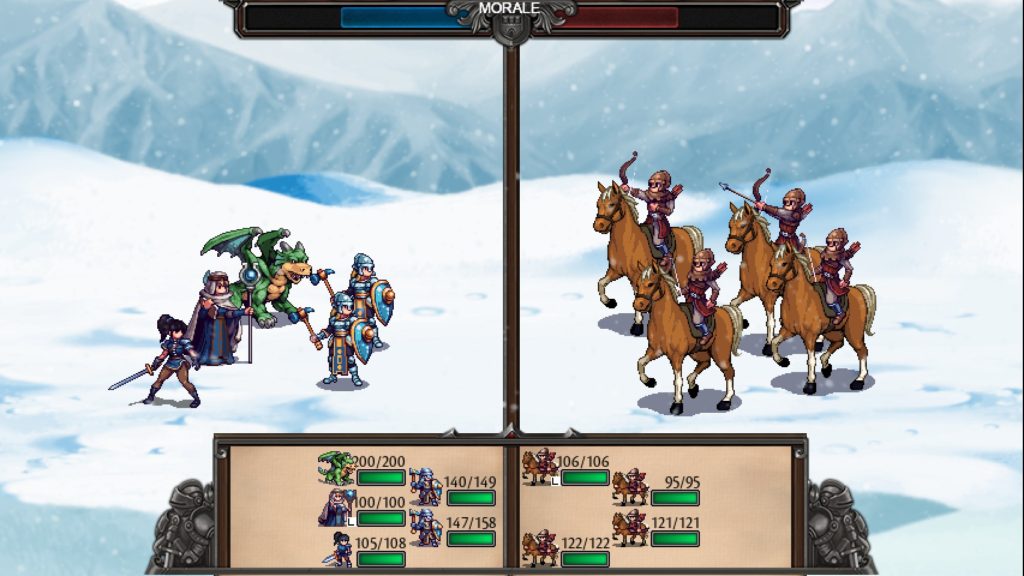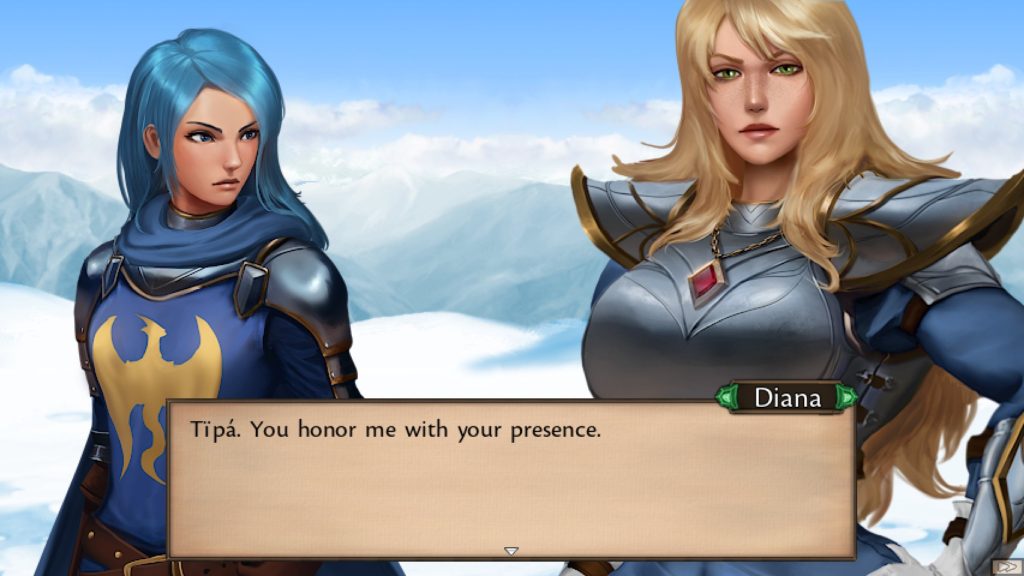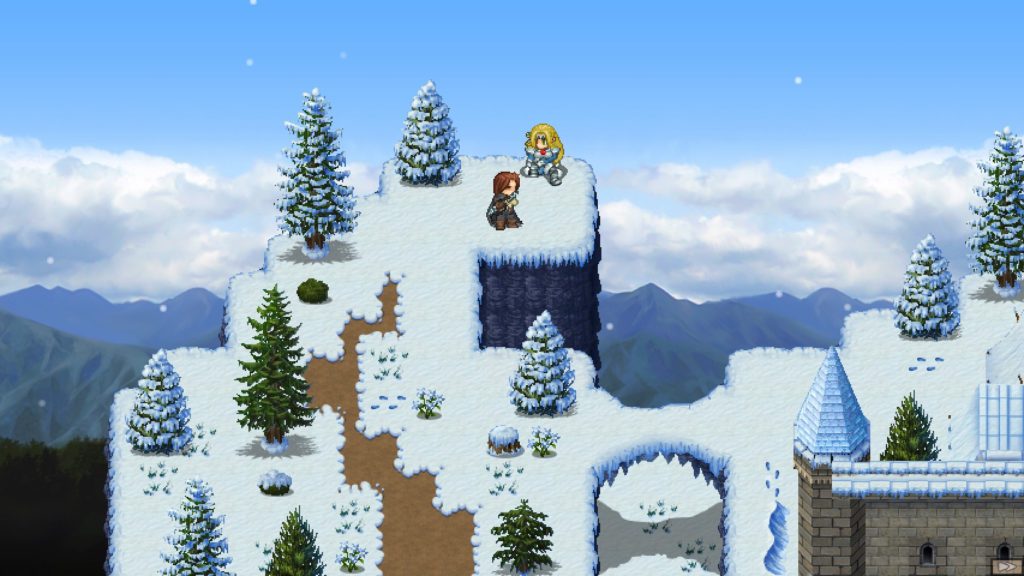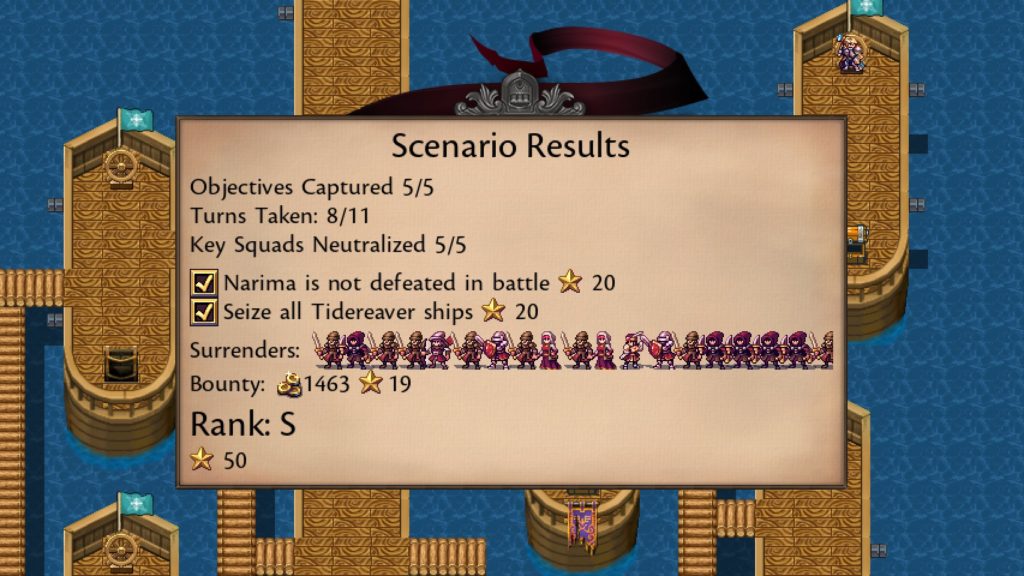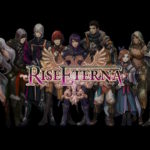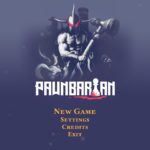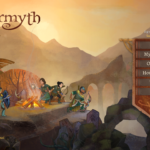It’s a tactical RPG where you control an army on the battlefield made of several squads. It’s a callout to one of the most unusual tactics battlers of all time — Ogre Battle.
In Symphony of War, as with Ogre Battle, you form squads of units and take them across a map, seizing towns and castles until finally meeting with the boss of the level. Each encounter takes you to a separate screen where the fight progresses.
There are some differences, though. Where Ogre Battle’s map has units moving simultaneously and in real time, Symphony of War’s overworld is turn based. And where Ogre Battle’s squad battles are turn based, Symphony’s are done automatically without player input.
The story trends strongly to familiar RPG tropes. Unexpected allies, wise mentors, orphans, mysterious destinies and inevitable betrayals all take their places on the stage. It’s a young adult fantasy greatest hits. I’m only a few hours in, so I can’t say for sure that the story ends with the five Nephelim of the title gathering together to take on an ultimate evil that threatens the world… but I bet it does. (The writing has said as much, and I doubt they’ll go a different way. But, they might.)
The game’s depth is in its squad building. Each unit costs a certain number of points, based on its power on the battlefield. The squad’s leader unit sets the capacity of the squad based on its leadership stat. Leadership can be increased by winning battles, keeping the squad’s morale high, and successfully convincing enemy squads to surrender. This is something they might do when their morale is severely broken. Squad leaders might also have leadership abilities that provide benefits if the units in their squad meet certain criteria — a cavalry leader might extend bonuses to other horse-mounted units in their squad. In the screenshot above, the leader grants an experience bonus to dragons in her squad.
Additional bonuses can be added with the very limited number of items bought from the merchants in each camp. Items such as swords and armor apply bonuses to the entire squad to which they are equipped, and can further assist the squad toward builds they were already crushing (such as versus cavalry or magicians), or add new capabilities to shore up weak spots.
Other bonuses can be applied to a specific unit and permanently stay with that unit.
The game has three difficulty settings; I’m playing on the default, medium setting, and (so far) I haven’t had any trouble finishing the fights and meeting all objectives. On the medium setting, units and squads can be defeated, but they are restored before the next battle. On the hardest setting, unit death is permanent, and on the easiest, death isn’t really a thing anyone needs to worry about — unless the story needs them to die.
Each chapter follows the same cadence. You are in base where you can trade with merchants or buy upgrades from the skill tree. You can also recruit new units and form them into squads. There’s a relationship screen where you can check out the relationships between all the main characters, and perhaps get clues to NPCs you’ve yet to meet. Additionally, conversation options let your character talk to the named NPCs, or for them to talk amongst themselves.
Once all the units are arranged and equipped, and all the conversations had, you deploy to the next battle to advance the plot.
Worth playing?
Squad based, turn based tactical RPGs are rare birds. Aside from Ogre Battle, I can’t really think of any offhand, though I’m sure there must be plenty out there. Google reminded me of Valkyria Chronicles, a game I played awhile ago. That was a game that was almost entirely about relationships working in harmony to form effective squads.
So, for a fairly uncommon tactical RPG, I’d certainly recommend it. The units can be upgraded in a lot of different ways. The morale mechanic adds a new way of defeating enemies without always having to kill them. Forming squads for mobility or defense, as examples, is just fun — building the squads might be the most fun in the game, actually.
After each battle, you’re graded on how well you met the objectives, how many units you caused to surrender and how much reputation you earned.
I’m not sure if battles can be replayed for a better score.
It’s a decent game. It’s not an exciting game. But I’ve only gotten through the first seven or eight chapters, so more surprises could be in my future. I’ll keep playing, and we’ll see how it turns out at the other side.
